Transforming your dog’s health starts with simple yet essential veterinary tips that pave the way for wagging tails and boundless energy. Are you eager to unlock the secrets to a happier, healthier furry friend?
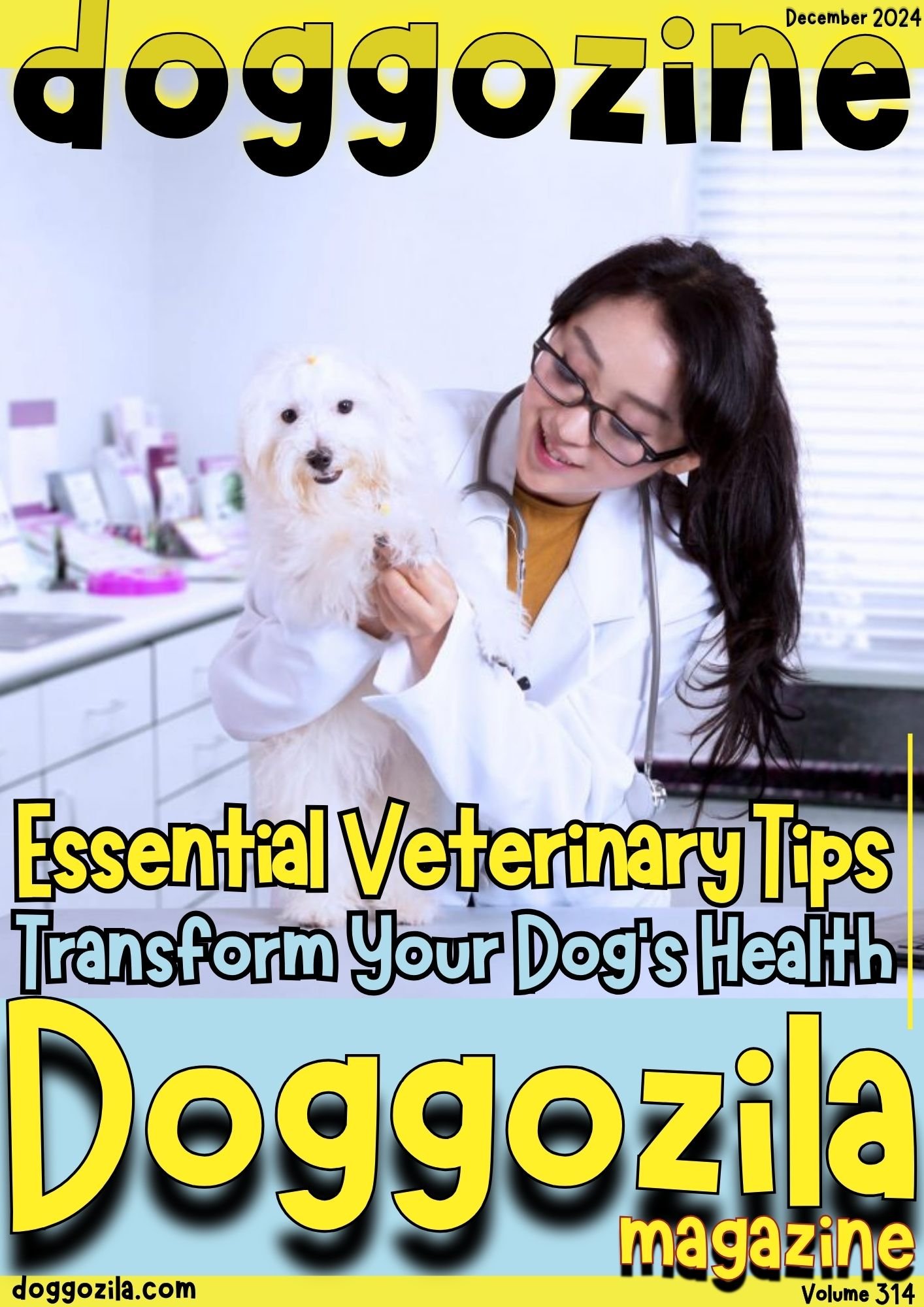
ESSENTIAL VETERINARY TIPS FOR HAPPY TAILS
In this comprehensive guide with essential veterinary tips, we delve into 6 vet-approved strategies encompassing diet, exercise, hygiene, training, and health monitoring that will elevate your furry friend’s well-being to new heights.
Veterinary strategies about diet, exercise, hygiene, training, and health monitoring
Feeding your dog a balanced diet, engaging in regular exercise routines tailored to their needs, and maintaining optimal hygiene practices are just the beginning. Discover the significance of training and socialization, the importance of veterinary check-ups, and the art of grooming for a thriving, tail-wagging buddy.
Join us on this journey to become a better pet parent and nurture a lifelong bond filled with joy, vitality, and companionship. Get ready to witness the transformation and embrace the fulfilling journey ahead for both you and your beloved four-legged friend.
Essential Veterinary Tips About the Importance of a Healthy Dog Diet
A healthy diet is the foundation of your dog’s well-being. Feeding your furry friend nutritious food tailored to their specific needs is crucial for maintaining optimal health.
When selecting the best food for your dog, consider factors such as age, breed, size, and activity level. Opt for high-quality, balanced diets that provide essential nutrients, vitamins, and minerals.
Avoid giving your dog human food, as many common ingredients can be harmful or even toxic to dogss. Foods like chocolate, grapes, and onions should be strictly off-limits.
- It’s Essential to Consult Your Veterinary for More Tips: Consulting with your veterinarian is a great way to determine the most appropriate diet for your dog. They can provide personalized recommendations based on your pet’s unique requirements.
- Read Labels Carefully: When shopping for dog food, take the time to read labels carefully. Look for products that list high-quality protein sources, such as real meat or fish, as the first ingredient. Avoid brands with excessive fillers, artificial preservatives, or by-products.
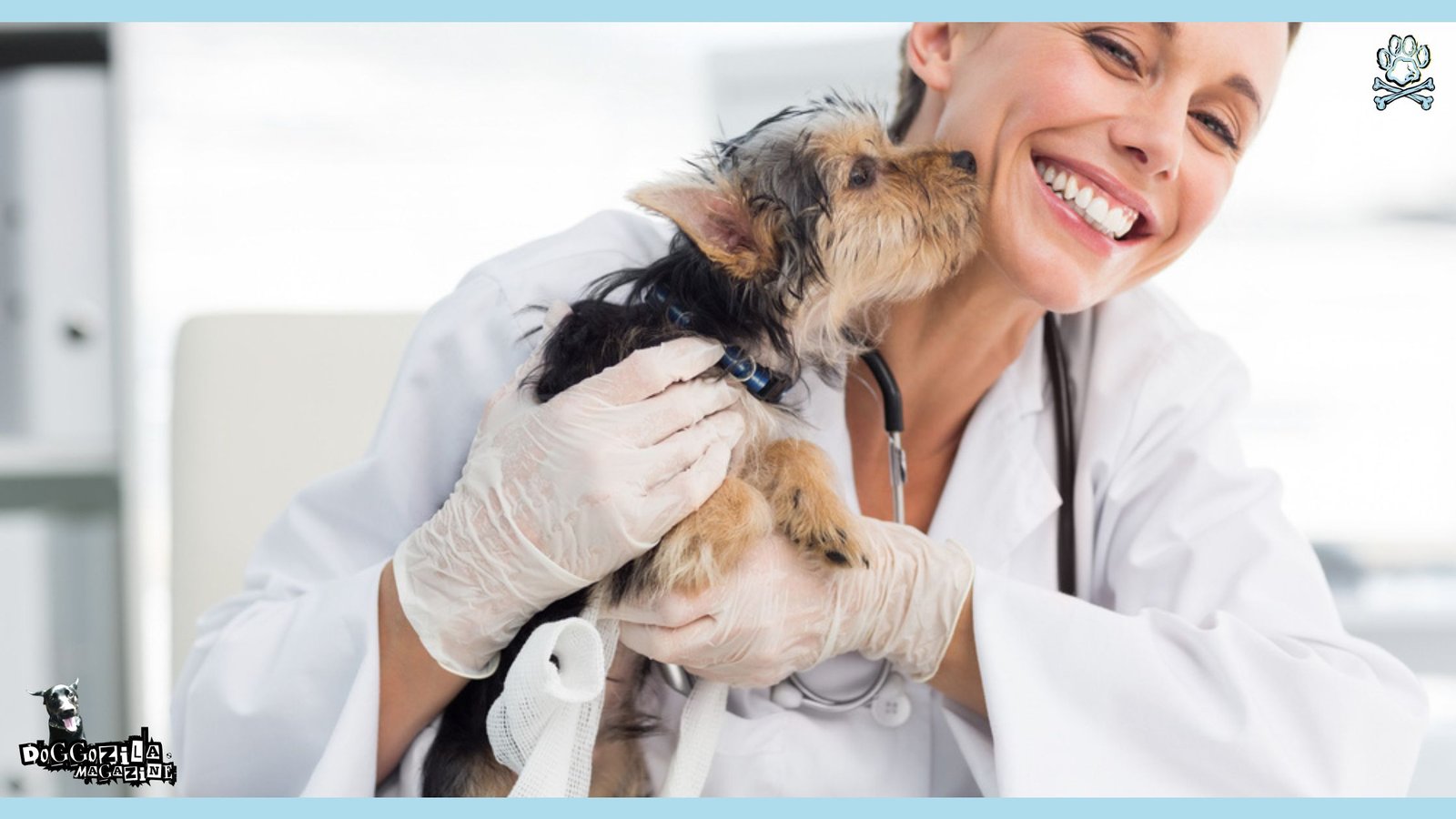
🔑 Key Points: Providing your dog with a healthy, balanced diet tailored to their specific needs is essential for promoting overall well-being and preventing potential health issues.
Veterinary Tips About Exercise That is Essentials for Dogs
Regular exercise is vital for your dog’s physical and mental well-being. The amount of exercise your dog needs depends on factors such as breed, age, and energy level.
Each dog has their own set of exercise requirements. While some breeds, like Border Collies or Labrador Retrievers, require extensive daily activity, others, such as Pugs or Bulldogs, may have lower exercise needs.
Engage your dog in a variety of activities, including walks, runs, playtime, and interactive games. This not only keeps them physically fit but also provides mental stimulation and strengthens your bond.
Gradual Introduction and Consistency
When starting an exercise routine, introduce activities gradually to avoid overexertion. Consistency is key—aim to provide your dog with daily exercise, even if it’s just a quick walk around the block. Remember to always supervise your dog during exercise and provide plenty of fresh water to keep them hydrated.
🔑 Key Points: Regular exercise, tailored to your dog’s individual needs, is essential for maintaining their physical fitness, mental well-being, and overall quality of life.
Keeping Up with Dog Hygiene
Maintaining your dog’s hygiene is crucial for their health and comfort. Regular grooming, including brushing, bathing, and trimming, helps keep their coat and skin in good condition. Don’t forget about dental care—brushing your dog’s teeth or providing dental chews can prevent tartar buildup and gum disease.
Nail Trimming and Ear Cleaning
Trimming your dog’s nails regularly prevents overgrowth and discomfort. If you’re unsure about cutting your dog’s nails, consult with a professional groomer or veterinarian for guidance.
Checking and cleaning your dog’s ears routinely helps prevent ear infections. Use a veterinarian-approved ear cleaner and cotton balls to gently remove any dirt or wax buildup.
🔑 Key Points: Consistent hygiene practices, such as grooming, dental care, nail trimming, and ear cleaning, are essential for maintaining your dog’s overall health and well-being.
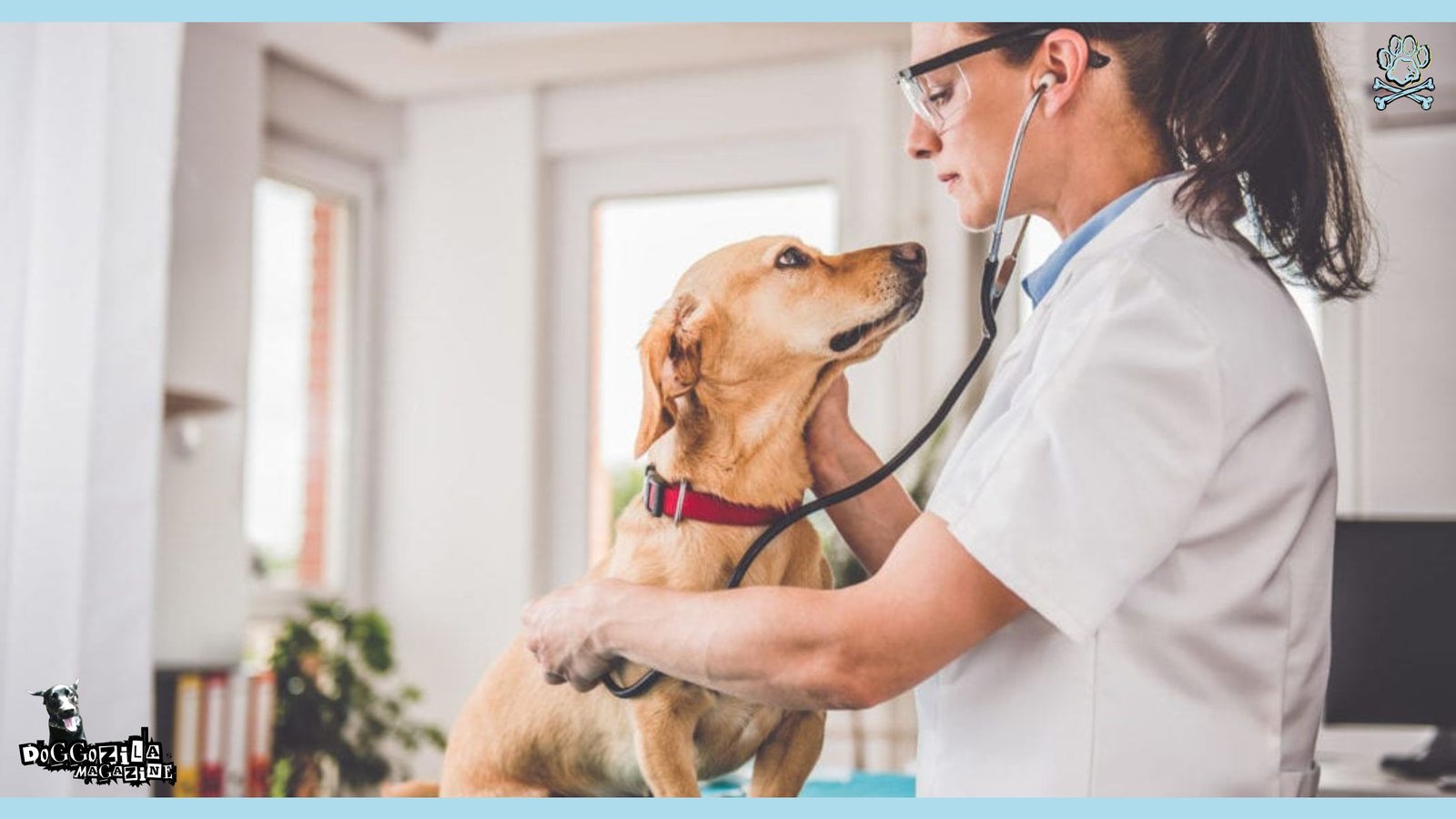
ESSENTIAL VETERINARY TIPS ABOUT THE BENEFITS OF TRAINING AND SOCIALIZATION
Training and socialization are essential for your dog’s development and well-being. A well-trained dog is easier to manage and less likely to engage in destructive behavior.
Dog Development Steps
- Positive Reinforcement Training: Using positive reinforcement techniques, such as rewarding good behavior with treats or praise, is an effective way to train your dog. Consistency and patience are key when teaching your dog new commands or tricks.
- Socialization for a Well-Adjusted Dog: Socialization helps your dog feel comfortable and confident in various situations. Expose your puppy to different people, animals, and environments in a controlled and positive manner.
Attend puppy classes, visit dog parks, or arrange play dates with other friendly dogs to help your pet develop social skills and learn appropriate interactions.
🔑 Key Points: Training and socialization are crucial for promoting good behavior, reducing destructive tendencies, and ensuring your dog is well-adjusted and confident in different situations.
Regular Veterinary Health Monitoring
Check these tips below why regular check-ups with your veterinary team are essential for monitoring your dog’s health and detecting any potential issues early on.
During a comprehensive physical examination, your veterinarian will assess your dog’s overall condition, including their weight, skin, coat, eyes, ears, and teeth. They may also perform diagnostic testing, such as blood work or urinalysis, to evaluate internal organ function and screen for underlying health problems.
Preventive Care and Vaccinations
Routine wellness exams also include preventive care measures, such as vaccinations and parasite control. Your veterinarian will recommend a vaccination schedule based on your dog’s age, lifestyle, and risk factors.
Staying up-to-date with vaccinations protects your dog from serious and potentially life-threatening diseases, such as rabies, distemper, and parvovirus.
Early Detection and Treatment
Regular veterinary visits allow for early detection and treatment of health issues before they become more serious or costly to manage.
If your veterinarian identifies any concerns during the examination, they can provide prompt treatment or recommend further diagnostic testing to determine the underlying cause.
🔑 Key Points: Regular veterinary check-ups, including comprehensive physical examinations, preventive care, and diagnostic testing, are crucial for monitoring your dog’s health, detecting potential issues early on, and ensuring your furry friend remains in optimal condition.
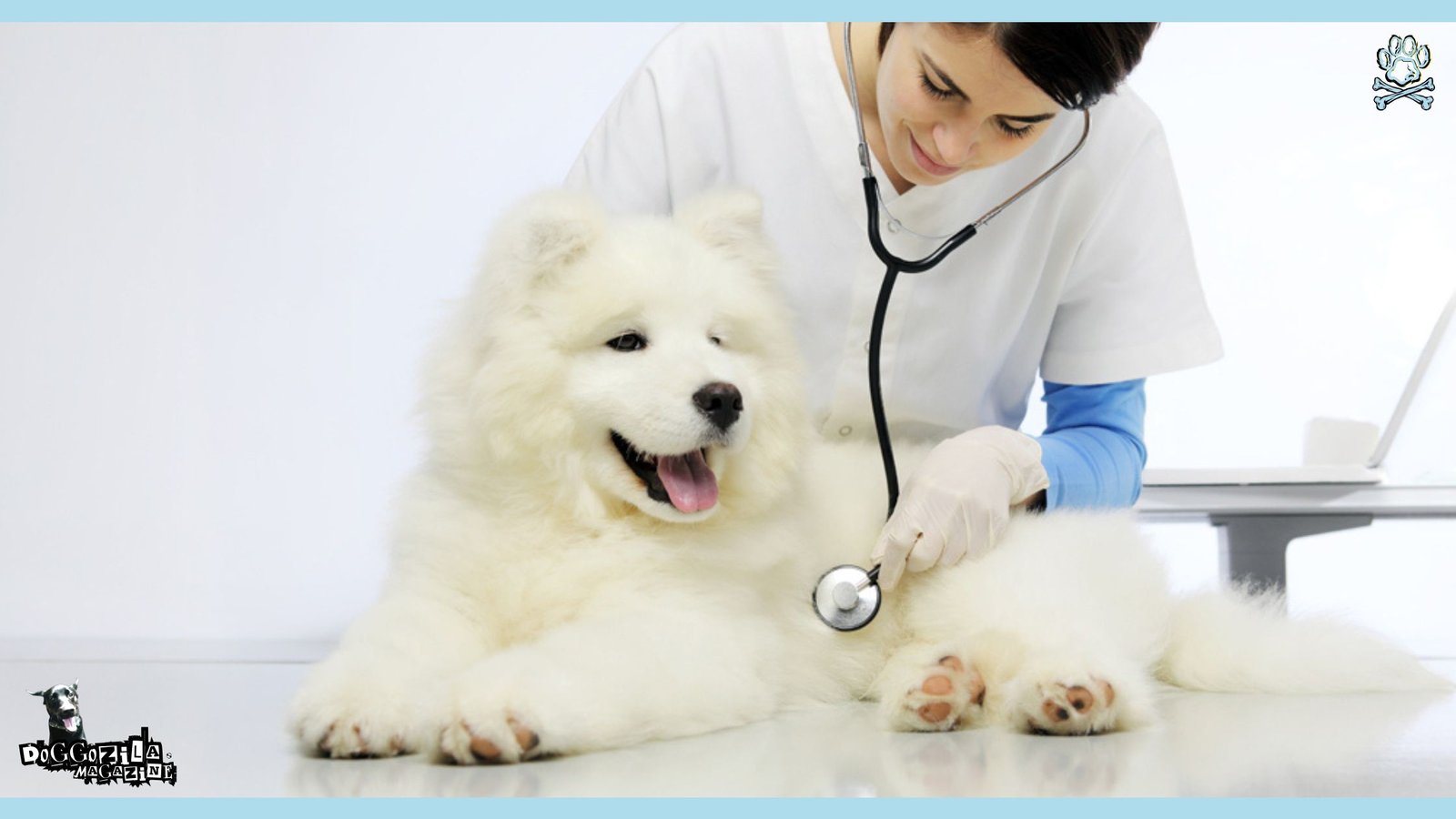
ESSENTIAL VETERINARY TIPS ABOUT THE ROLE OF REGULAR CHECK-UPS AND VACCINATIONS
Annual veterinary exams and vaccinations play a vital role in maintaining your dog’s health and preventing serious illnesses. During these check-ups, your veterinarian will perform a comprehensive physical examination to assess your dog’s overall health. They will also administer necessary vaccinations based on your dog’s age, lifestyle, and risk factors.
„ Vaccinations protect your dog from potentially life-threatening diseases, such as rabies, distemper, and parvovirus. Regular check-ups also allow for early detection of any health issues, enabling prompt treatment and better outcomes. Your veterinarian may recommend diagnostic testing, such as blood work or urinalysis, to screen for underlying conditions. “
🔑 Key Points: Annual veterinary exams and vaccinations are essential components of preventive care that help maintain your dog’s health and protect them from serious diseases.
The Importance of Parasite Prevention
Protecting your dog from parasites is crucial for their health and well-being. Fleas, ticks, and intestinal parasites can cause a range of health issues, from skin irritation to more serious conditions like Flea allergy in dogs, Lyme disease or heartworm.
Regular flea/tick prevention, through the use of topical treatments, collars, or oral medications, helps safeguard your dog against these pesky critters and the diseases they carry.
Your veterinarian can recommend the most appropriate parasite prevention plan based on your dog’s lifestyle and risk factors.
🔑 Key Points: Consistent parasite prevention is essential for protecting your dog from the discomfort and potential health risks associated with fleas, ticks, and intestinal parasites.
Diets and Nutritional Needs Based on Dog Breeds
Different dog breeds have varying nutritional requirements based on their size, activity level, and specific health concerns. It’s essential to choose a diet that caters to your dog’s individual needs to maintain a healthy weight and prevent issues like joint pain or digestive problems.
- Size-Specific Diets: Small breeds have higher metabolic rates and require more calories per pound of body weight compared to larger breeds. They benefit from diets with smaller kibble size and higher protein content. Large and giant breeds, on the other hand, are prone to joint issues and may require diets with lower calorie density and added glucosamine and chondroitin for joint support.
- Breed-Specific Health Concerns: Some breeds are predisposed to certain health conditions that can be managed through diet. For example, Dalmatians are prone to forming urate stones and benefit from diets low in purines. Breeds like Labrador Retrievers and Golden Retrievers are susceptible to obesity, so portion control and a balanced diet are crucial for maintaining a healthy weight.
🔑 Key Points: Tailoring your dog’s diet to their breed-specific needs, considering factors such as size, activity level, and potential health concerns, is essential for promoting optimal health and well-being.
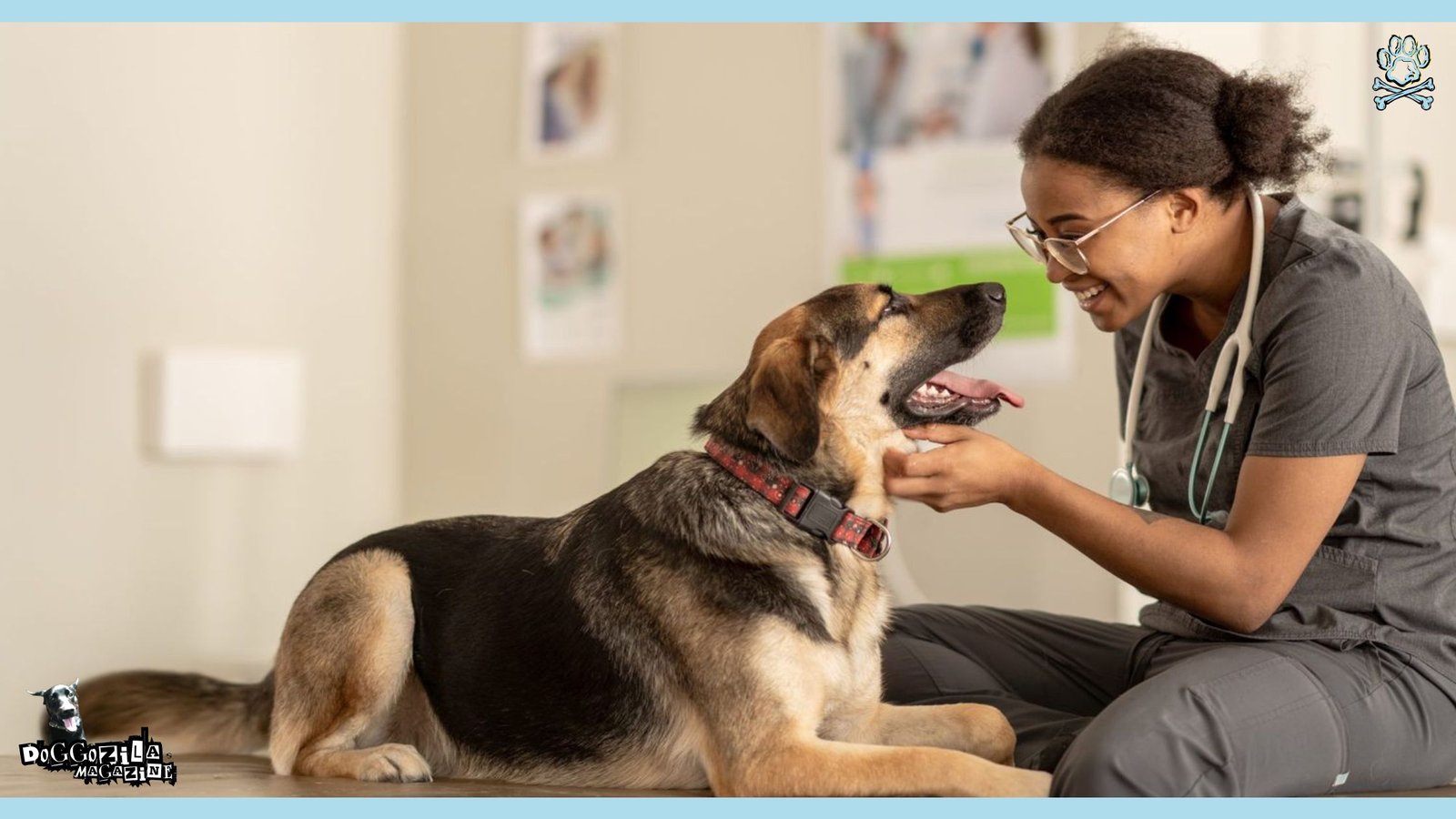
ESSENTIAL VETERINARY TIPS: GROOM YOUR DOG FOR HEALTH AND HAPPINESS
Grooming is an essential aspect of dog care that contributes to both their health and happiness. Regular brushing helps remove loose fur, distribute natural oils, and keep your dog’s coat shiny and healthy. Bathing your dog when necessary, using a gentle dog-specific shampoo, helps maintain healthy skin and prevents unpleasant odors.
Bonding Through Grooming
Grooming sessions also provide an opportunity for bonding and relaxation. Many dogs enjoy the attention and physical touch that comes with being brushed or combed. Use grooming time to check your dog’s skin for any lumps, bumps, or irritations that may require veterinary attention.
🔑 Key Points: Regular grooming not only keeps your dog’s coat and skin healthy but also promotes bonding and allows for early detection of any potential health concerns.
Signs Of Good Health In Dogs
Recognizing signs of good health in your dog is essential for monitoring their well-being and detecting any potential issues early on. A healthy dog typically maintains a healthy weight, with a visible waist and ribs that can be felt but not seen.
- Healthy Coat and Skin: A healthy dog’s coat should be shiny, smooth, and free of excessive shedding or bald patches. Their skin should be supple and free of redness, itching, or flakiness.
- Bright Eyes and Clean Ears: Clear, bright eyes without discharge or redness are a sign of good health. Your dog’s ears should be clean, free of odor, and have a pink lining of the eyelid.
- Normal Bodily Functions: Healthy dogs have regular bowel movements, with firm, well-formed stools. Their urine should be clear to slightly yellow without any strong odor or discoloration. A healthy dog’s nose should be moist and free of discharge, and their breath should not have a strong, persistent odor.
🔑 Key Points: Familiarizing yourself with the signs of good health in dogs, such as a healthy weight, shiny coat, clear eyes, and normal bodily functions, allows you to monitor your pet’s well-being and address any concerns promptly.
Overcoming Common Health Challenges
Despite our best efforts to keep our dogs healthy, they may still face various health challenges throughout their lives. Common issues include dental problems, dandruff in dogs, skin allergies, ear infections, and age-related conditions like arthritis.
- Prompt Veterinary Care: If you notice any signs of illness or discomfort in your dog, such as changes in appetite, lethargy, or abnormal behavior, it’s essential to seek veterinary care promptly. Early intervention can prevent minor issues from escalating into more serious or life-threatening diseases.
- Accurate Diagnosis and Treatment: Your veterinary team will perform a comprehensive physical examination and may recommend diagnostic tests, such as blood work or imaging, to determine the underlying cause of your dog’s symptoms.
- Personalized Treatment Plan: Once an accurate diagnosis is made, your veterinarian will develop a personalized treatment plan tailored to your dog’s specific needs. This may include medications, dietary changes, or other therapies to address the health issue and alleviate discomfort.
- Follow-Up Care and Monitoring: Following your veterinarian’s recommendations and attending follow-up appointments are crucial for monitoring your dog’s progress and adjusting treatment as needed.
🔑 Key Points: Promptly addressing common health challenges, seeking veterinary care for accurate diagnosis and treatment, and adhering to follow-up care recommendations are essential for helping your dog overcome illness and maintain optimal health.
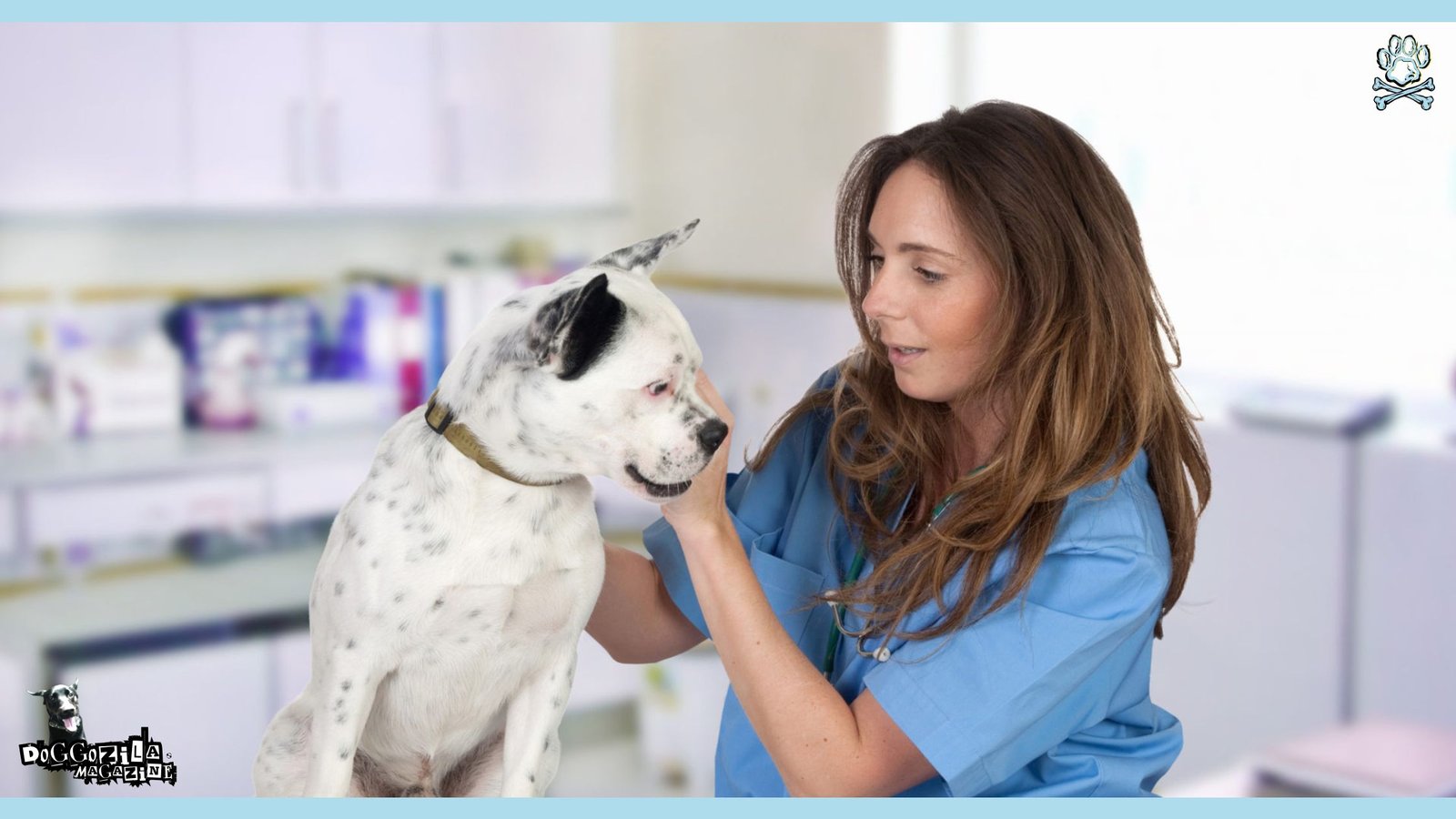
ESSENTIAL VETERINARY TIPS ABOUT THE BENEFITS OF PET INSURANCE
Investing in pet insurance can provide financial safety and peace of mind when faced with unexpected veterinary expenses. Accidents, illnesses, and emergency situations can result in costly treatment bills that may strain your budget.
Why You Should Have Pet Insurance
Pet insurance helps cover a portion of these expenses, allowing you to focus on your dog’s health without worrying about the financial burden. When selecting a pet insurance plan, consider factors such as coverage options, deductibles, and reimbursement percentages.
Some plans offer comprehensive coverage for accidents, illnesses, and routine care, while others may have more limited benefits. Review the policy details carefully and consult with your veterinary team for guidance on choosing a plan that best fits your dog’s needs and your budget.
🔑 Key Points: Pet insurance provides financial protection and peace of mind, enabling you to provide your dog with the necessary medical care without facing overwhelming expenses.
Enhancing Your Dog’s Life with Fun and Care
Enriching your dog’s life with fun activities and loving care is essential for their overall well-being and happiness. Regular exercise, such as a quick walk or play session, not only keeps your dog physically fit but also provides mental stimulation and strengthens your bond.
Engage your dog’s mind with puzzle toys, interactive games, and training sessions that challenge them to learn new skills or behaviors. Socialization is crucial for a well-rounded dog. Arrange play dates with other friendly dogs or visit dog parks to provide your pet with opportunities for social interaction.
Above all, show your dog lots of love and affection. Quality time spent together, whether it’s cuddling on the couch or exploring new places, enhances your relationship and contributes to your dog’s overall happiness.
🔑 Key Points: Incorporating fun activities, mental stimulation, socialization, and loving care into your dog’s daily life is essential for promoting their physical, mental, and emotional well-being.

Dog’s Health as a Reflection of Lifestyle Factors
Your dog’s health is greatly influenced by various lifestyle factors, such as diet, exercise, and environmental conditions. Providing your dog with a balanced diet appropriate for their age, breed, and activity level helps maintain a healthy weight and supports overall well-being.
Regular exercise, whether it’s a walk around the neighborhood or a visit to the dog park, is crucial for maintaining your dog’s physical fitness and preventing obesity-related health issues.
Creating a safe and comfortable living environment for your dog is also essential. This includes providing a clean, cozy sleeping area, fresh water, and appropriate shelter from extreme weather conditions.
Regularly engaging your dog in social interactions, such as play dates or training classes, helps prevent behavioral issues and promotes mental stimulation.
🔑 Key Points: Recognizing the impact of lifestyle factors on your dog’s health and making positive changes in diet, exercise, and living conditions can significantly contribute to their overall well-being and quality of life.
Making the Most of Your Dog’s Veterinary Visits
To ensure your dog receives the best possible care during veterinary visits, come prepared with any questions or concerns you may have about your pet’s health. Keep a record of your dog’s diet, exercise routine, and any observed changes in behavior or habits.
During the appointment, your veterinary team will perform a comprehensive physical examination and may recommend diagnostic tests or vaccinations based on your dog’s needs.
Take this opportunity to discuss any preventive care measures, such as dental cleanings or parasite control, and ask for guidance on maintaining your dog’s health at home.
🔑 Key Points: Preparing for veterinary visits, discussing your concerns with the veterinary team, and following through with recommended preventive care and at-home measures are key to maximizing the benefits of these check-ups and ensuring your dog’s ongoing health and well-being.
A Quick Summary About the Essential Veterinary Tips
Ensuring the optimal health and happiness of your furry companion is a journey worth embarking on. By incorporating the essential expert veterinary tips shared in this comprehensive guide, you are taking proactive steps towards transforming your dog’s well-being.
From understanding the importance of a healthy diet tailored to your dog’s specific needs to embracing regular exercise routines tailored to their breed, age, and activity level, each aspect contributes to a holistic approach to dog care. Maintaining regular hygiene practices, emphasizing training and socialization, prioritizing veterinary health monitoring, and grooming your dog regularly are all crucial components in maintaining their overall health.
By being proactive in preventive care measures, such as parasite prevention and annual veterinary exams, you are investing in your dog’s long-term health and well-being. Remember, your dog’s health is a reflection of your lifestyle choices, so make every effort to be a responsible and caring pet parent.
Incorporating these essential veterinary tips into your daily routine not only benefits your dog but also strengthens the bond you share. Your dedication to providing a nurturing environment, coupled with these essential veterinary tips and guidelines, sets the foundation for a happy and healthy life together.
Implement these practices to witness the positive impact on your furry friend’s health and happiness.
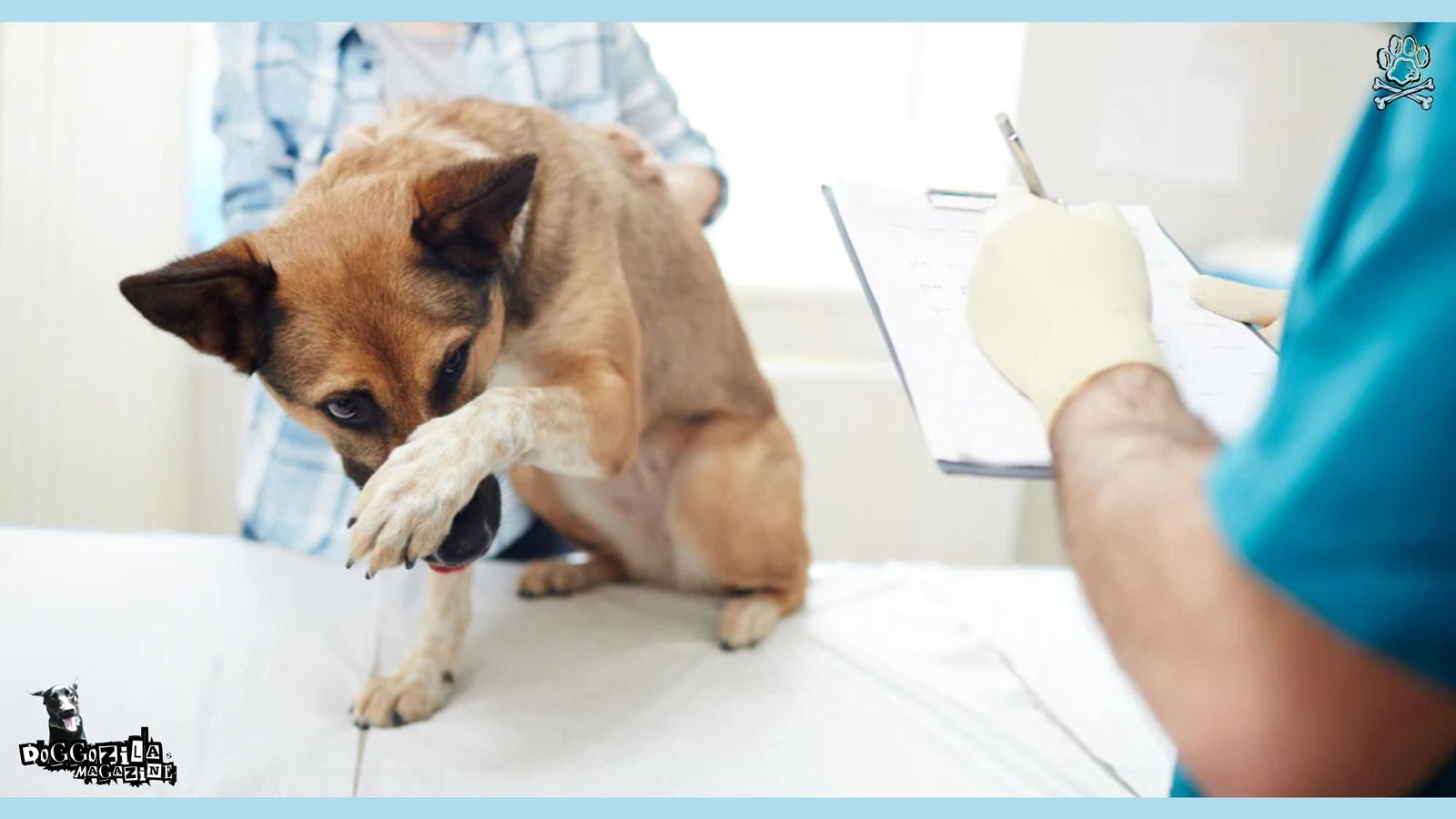
Thank you for prioritizing your dog’s well-being and here’s to many more happy tails ahead.









